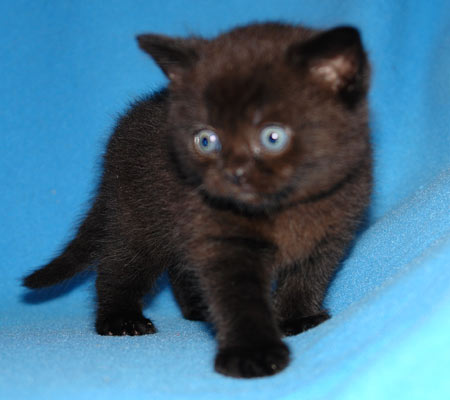- Учителю
- Исследовательская работа по английскому языку
Исследовательская работа по английскому языку
Министерство образования Республики Башкортостан
Муниципальное бюджетное образовательное учреждение
Средняя общеобразовательная школа № 8 г. Бирска муниципального района
Бирский район Республики Башкортостан
Исследовательская работа
Superstitions and signs of Russia,
Great Britain and Bashkortostan.
Выполнила:
ученица 8В класса
Султанова Е.И.
Руководитель:
Учитель английского
языка
Бикбова М.Н.
Бирск 2012
Introduction
Summary...............................................................................................................3
Introduction........................................................................................................4-5
1. What is a superstition? ...................................................................................6
1.1. Weather superstitions........................................... ..........................................7
1.2. Professional superstitions................................................................................8
1.3. Animal superstitions....................................................................................9-10
1.4. Food superstitions......................................................................................10-11
2. Some holiday superstitions in Russia, Great Britain and Bashkortostan......11-13
3. Conclusion..........................................................................................................13
4. Literature............................................................................................................14
5 Appendixes.....................................................................................................15-16
Summary
The theme of the research work is "Superstitions and signs of Russia, Great Britain and Bashkortostan". The author of work is a pupil of the eighth form Sultanova E.I. The supervisor is an English teacher Bikbova M.N.
Superstition is a very big part of British, Russian and Bashkir culture. For centuries each country has been borrowing different unique traditions and beliefs from various countries. These superstitions have been passing on from generation to generation, from one country to another, for years, even for centuries. They are an essential part of each culture because they reflect the national character, traditions and habit, their lifestyle. In order to understand the British, the Russian or the Bashkir people we should know the history and culture of these countries. This defines the importance of the work and its theoretical value.
The object of the research work is British, Russian and Bashkir superstitions and signs.
Actually, some people believe in superstitions and signs, others don't. First, they may probably say that they don't believe in sings and that they are free from superstitions. But when they try to remember the things they believe in, they can get a list of sings that they consider to be reliable. For example, in Russia to return to your home after closing the door is a bad sign. Some Englishmen believe they will have bad luck if they walk under a ladder. Bashkir people think that if a cat washes its ears, a guest is coming. And there are a lot of them. Even if people say they are not superstitious, they will avoid doing something to be on the safe side. In fact, it's probably impossible to know all superstitions in the world. In different countries there are different beliefs. However, there are some common superstitions connected with weather, animals, food, professions, holidays, which mostly have the same psychological origin.
Since ancient time people have been trying to predict the weather, they watched animals' and birds' behavior and formed some certain signs and superstitions. Superstitions referring to a black cat are some of the most well-known popular ones today. But it may depend on what country you live in. In Britain, having a black cat cross your path means good luck. But in Russia it means bad luck.
There are also some professional superstitions, too. For example, some sportsmen believe in lucky socks or shorts. They follow these superstitions when they want to win a game, to do their best in their carrier or just to be in luck.
Generally speaking, people become superstitious especially on holidays, because they wait for something unusual and mysterious during holidays. Though every country and every nation celebrates the same kind of holiday, in fact, there are some peculiar differences between them. They follow special traditions, make special dishes, go to churches, make wishes. They are all proud of their traditions and enjoy them greatly.
To sum it up, it should be said that no matter whatever superstitions are bad or good, we should always try to believe in good ones to make our life happy and be positive. Moreover, we should keep in our mind that luck is in our side.
Introduction
The present research work is devoted to British, Russian and Bashkir superstitions and signs.
Throughout historical development the mankind has accumulated not only a system of scientific knowledge, but also kind of a system of inexplicable facts and observations about nature, animals, surroundings etc. These facts and observations have been handed over from generation to generation, they have been carefully kept and people have been trusting them as if they were a sacred book.
It is obvious that today scientists try to explain some of these mysterious facts or happenings but more often than not fail to do so. And people still do keep relying on superstitions and signs. Perhaps, nowadays we are not so superstitious as our ancestors were but nevertheless seeing an empty bucket or a black cat crossing the path we stop in spite of ourselves to do something to avoid bad luck.
It goes without saying that signs contain plenty of accurate knowledge and practical wisdom of our ancestors. They are found all over the world. Superstitions and signs are considered to be part of the cultural heritage of any country. They find their reflection in the language to show religious beliefs, life values and attitudes. Thus to understand the British, the Russian or the Bashkir people we should know the history and culture of these countries, and of course, respect them.
But despite the fact that many scientists have shown a certain interest in the problem, some superstitions and signs cannot be reasonably explained. Indeed, a sign is an integral part of a national culture, it is a constituent part of a national mentality with its unique aesthetics requiring proper exploration and research. They are also of great interest because they enrich national languages. This defines the importance of the work and its theoretical value.
The object of the research work is British, Russian and Bashkir superstitions and signs.
The hypothesis of the research is folk signs current in the society as part of a national culture reflect peoples' national character, their lifestyle, world outlook, customs and traditions.
The basic purpose of the work is a comparative analysis of British, Russian and Bashkir superstitions and signs on the basis of studying some spheres of objective reality and cultural and traditional aspects such as weather, professions, food, holidays.
The stated aim predetermines the concrete tasks of the research. The work pursues the following objectives:
-
To find out and study British, Russian and Bashkir superstitions and signs related to weather, animals, professions, holidays from different information sources.
-
To give a poll among the 7th formers to find out the degree of their superstitious.
-
To make a comparative analysis of the result of the research.
The practical value of the work lies in the fact that the knowledge of folk superstitions and signs enriches the national language and helps to understand the culture of these people.
The novelty of the work is that it is focused on three culturally very different peoples and their languages: Britain, Russian and the republic of Bashkortostan. Some superstitions and signs are common to all of them.
The research work consists of an introduction, two chapters, a conclusion, a list of works used and appendixes.
1. What is a superstition?
Superstition is a very big part of Britain, Russian and Bashkir culture. For centuries each country has taken different unique traditions and beliefs from various countries. Thousands of people believe in them although a lot of people think of superstitions as nonsense and not based on reason. Where does the word "Superstition" come from? The word "Superstition" comes from two Latin words: "Super" and "Stare". Super means "above" and stare means "to stand". According to A.S. Hornby's dictionary" Superstition is a belief in things or events that bring good luck or bad luck that is not logical or has no scientific explanation".
By the way, do you know anyone who does not believe a superstition? Do you knock on wood for luck or cross you fingers? Do you think Friday the 13th is an unlucky day? Let's look at the screen and listen to some interviews (interview). These are some of our teachers' points of view. But, what do the children think about this problem? The results of the interview are the following:

As you see 70% of pupils believe in superstitions, 20% don't and 10% of pupils are not sure.
So, most of the people, more or less, believe in them. Even though they deny superstitions, they cannot help believing in them. In fact, we have hundreds of superstitions and they are all around the world passing down through generations. They change from culture to culture and they have a big influence оn our lives. There are two types of superstition. Good luck superstitions and bad luck superstitions.
Further on we shall consider some superstitions and signs referring to weather, professions, animals, food, holidays.
1.1. Weather superstitions.
As a rule, there are many superstitions connected with the weather. In fact, all of us are forecasters. We always try to predict the weather when we are planning something to do. Our forecasts are not always scientific, of course, but sometimes they come true,
Since ancient time people have been trying to predict the weather for planting, farming, for safe trips or just to know about the coming season. As a result, they found many signs in nature and used them in everyday life.
Even today many people still pay attention to some superstitions concerning the weather. There are a lot of signs about the weather in Russian, Britain and Bashkir culture. These signs have passed on through generations, from one country to another, for years, even for centuries. That's why it is difficult to define the origin of this or that sign. Practically, they exist in all above mentioned cultures. Here are some examples of them.
If the swallows are flying high, it is not going to rain.

If a dog rolls on the floor, it is going to rain or snow.
If February is frosty and sunny, August is going to be hot and dry.
If there is a storm in September, autumn is going to be warm and dry.
If smoke goes up from the chimney, it is going to be cold.
If cows are all lying down, it is a sign of rain.
Some British people also think when there are a lot of berries on trees and bushes in autumn, the winter is going to be a hard one or that if it rains on the 15th of July, then it will rain each day for the next forty days.
So, we can enumerate lot of other weather superstitions. To my mind, we should know these signs because they have been passed on as tradition. They are a part of peoples' culture. And one more fact, if some of them work, why we should ignore them?
1.2. Professional superstitions.
There are also a number of superstitions which are specific to certain professions. For example, some sportsmen believe in lucky socks. If an athlete wears a particular pair of socks on a day he performs particularly well, he may continue to wear the same pair of socks in the belief that these socks bring success. In some cases, this simple belief in success may give good results. But if the athlete cannot find his 'Lucky socks" in his next performance, he may perform poorly due to lack of confidence. Some football players believe double numbers on a player's uniform bring good luck. It is also interesting to know that tennis players avoid the yellow color.

Sailors, for instance, believe that it is a bad luck to kill an albatross, as killing an albatross is thought to be the spirits of dead sailors. There are also superstitions among actors. They say:" Don't whistle in the theatre! It brings bad luck. It is also considered unlucky to use real money on the stage. But cats in the theatre bring good luck. Some of the actors even have their cats with them in their dressing rooms. When entering a room a famous Hollywood actress Sailma Xiek (Сельма Хайек) steps over with her right foot considering that the left foot brings unluck. A tennis player Elena Dementeva never walks under a ladder and when going to a competition she never returns back for a forgotten thing. To her mind, something bad may happen. A well-known politician Anatoliy Chubais has a pin under his jacket to avoid bad eyes. He believes it helps him in his professional carrier.
As you see, some of the superstitions are seriously taken by people in their professional work. They carefully follow them in order to increase their chances of winning at the game, performances, and just to be lucky in life.
1.3. Animal superstitions.
Superstitions around the black cat are some of the most well-known and popular superstitions today. For thousands of years, black cats have been regarded as pets with supernatural power. Fairy tales, myths often contain black kittens or cats. It is believed that they have nine lives. Personally, I think that we have superstitions about cats because the cat has lived with people for many years. And here are a few cat superstitions:
"A black cat crosses your path."
But it may depend on where you live in the world. In Britain, having a black cat cross your path means good luck. But in Russia and in America it means bad luck.
The Russian superstition says a black cat signifies evil and it will bring you failure in business. If you see a black cat, you have a couple of options - bless yourself with a sign of the cross, or wait for somebody else to pass the black cat before you, and take the bad luck with him.
English schoolchildren believe seeing a white cat on the way to school brings trouble. To prevent the bad luck, they must turn around completely and make the sign of the cross.

"Let the cat first enter a new house". This Russian superstition means that the family will live a wealthy and healthy life in the new house.
"If a cat is washing itself" - a visitor is coming. (a Bashkir superstition.)
"if a black cat walks towards you, it brings good luck, but if it walks away, it takes the good luck with it. (an American superstition.)
"If a black cat sneezes inside, it will bring bad luck." (a British superstition)
But in my opinion, a cat of any color is just a cat and cannot make our fortune…unless we believe it can. I like these nice creatures very much, without them life would be boring. It's my point of view.
1.4. Food superstitions.
Now a few words about superstitions referring to food. Some Russian people think that

Salty soup is a sign that the cook is in love.
Unlucky to spill salt on the table. (If you do, you must throw it over your shoulder.)
If you drop a table knife expect a man, if you drop a fork expect a woman.
When giving a cat or a dog as a present you should get some sum of money, for example one Russian ruble.
British superstitions:
If you put the sugar into the cup first, before the tea, you will have good luck.
You can hang up garlic in you house for good luck.
If you blow out all the candles on your birthday cake in one blow, you will whatever you want.
If a girl drinks salty water then goes to sleep, she will see her future husband in her dream.
Cut bread only with a knife. Don't break it with your hands. Otherwise your life will be broken.
So, food superstitions are also the oldest beliefs in the world. They reflect our
everyday life. Everybody knows them and sometimes jokes about them. But no matter whether they are positive or negative, we should always know that luck is in our side.
2. Some holiday superstitions in Great Britain,
Russia and Bashkortostan.
On holidays almost all people become a bit superstitious because they wait for something unusual and mysterious. They try keep to some traditions, believe in good things, make brilliant wishes and ideas. Though every country and every nation celebrates the same kind of holiday, in fact, there are some differences between them. We shall start with religious holidays.
GREAT BRITAIN

RUSSIA

BASHKORTOSTAN

Christmas.
Rozhdestvo.
Uraza Bairam
It is celebrated on the 25th of December. It is believed to be a season of good will. It's the most beautiful time of the year- the time of love, joy and hopes. All the people look forward to it, expecting something special. Little children believe that when they are asleep Santa Claus comes down through a chimney with a big bag of toys. They often hang up stockings for the presents.
The Rozhdestvo in Russia is celebrated on the 7th of January. A lot of people go to churches. At Christmas night young people put on fancy dresses and go in every house singing merry songs. They get sweets, chocolate and many other tasty things. Young ladies tell fortune on these days. One more fact, if you wear new shoes on Christmas it will bring you bad luck.
It is a Moslim holiday. This holiday symbolizes belief, hope, love, tolerance and understanding. People keep fast (пост) for a month to purify their souls and bodies. Before Uraza Bairam people wash and clean their houses, buy new clothes and tasty things. During the celebration the
Muslims give money to the poor.
New Year's Day
New Year's Day
New Year's Day
It is celebrated on the 1st of January. There are some traditions on New Year's Day. One of them is the old first Footing. The first man to come into the house is very important. The Englishmen believe that he brings luck. This man must be healthy, young, pretty looking. He brings presents like bread, a piece of coal or a coin.
Children always wait for Father Frost to come and give them presents. Sometimes the Farther Frost leaves presents under a New year tree. People believe that the New Year brings new happiness, health and love.
According to the Bashkir tradition the first visitor to enter a house on New Year's morning must be a man or a boy. He is a man of great importance, too, as he lets the New Year into the house. He is said to bring happiness to the family. As a rule, the family treats him with sweets or gives some money to him.
Easter
Paskha
Karga butkasy(воронья каша)
Easter is a church holiday. There is a popular belief that wearing 3 new things on Easter brings good luck. Another custom is decorating eggs for children. Eggs are hidden in the yards. Little children believe that the Easter rabbit comes and leaves eggs for them.
Paskha is the way the
Russians call Easter. It lasts a week. Each day of the Paskha week has a name and certain traditions. During the holiday people paint eggs, and make kulich. They also predict the weather, go to churches, ask their nearest and dearest to forgive them. Putting on new clothes symbolizes a new life.
It is celebrated in March. The Bashkir people celebrate the setting of spring. Women and children go on picnics and have fun. They decorate trees, play games and dance. Women cook porridge and treat birds.
Harvest festival.
Pokrov
Sabantui
It is traditionally held in September. Harvest Festival is a celebration of the food grown on the land. People usually share good things with those who are not very rich.
It is celebrated on the 14th of October. On this day the Russians bake blini. There is a tradition to arrange weddings on Pokrov. They say if it snows on Pokrov, marriage will be happy. Young people organize Pokrov's posidelki.
Sabantui is a national festival. It is a folk festival of dreams and hopes. The Bashkir people celebrate this holiday after finishing their work in the gardens and in the fields. They wish to get a good harvest. People dress in their best. Horse racing, sport games, dancing, the sounds of the kurai are typical to Sabantui.
You see some differences in the way people celebrate holidays. As the English
proverb says "Every country has its customs". I think, every country is proud of its traditions and enjoys them greatly.
Conclusion
Every country has its own traditions, customs and superstitions. They are an essential part of culture because they show people's character, habit and lifestyle. To my mind, it is very important to know and follow special traditions because they unite people. Every nation is proud of its traditions and carefully keeps them up.
Throughout history people has observed different natural phenomenon, animals' and birds' behavior and formed some specific signs and superstitions. These signs
and superstitions may be different. Some people believe in them, some don't. First you may probably say that you do not believe in signs and you are free from superstitions. But when you try to remember the things you believe in, you can get a list of signs that you consider to be reliable. For example, in Russia, if a black cat crosses your path, it means that the day will be unlucky if you go further on. To return to your home after closing the door is a bad sign. Some Englishmen believe they will have bad luck if they walk under a ladder. Even if people say they are not superstitious, they will avoid walking under a ladder. And there are plenty of them.
So, what a superstition is? Superstition is a belief that some objects or actions are lucky and some are unlucky, based on old ideas of magic. Every culture in the world believes certain superstitions.
But it is probably impossible to know all superstitions in the world. In different countries there are different beliefs. However, there are some common superstitions connected with weather, animals, professions, holidays, which mostly have the same roots. These superstitions have passed on through generations, from one country to another for years, even for centuries. That's why we should treat them carefully and consider them as treasures of world culture.
To sum up, it should be said no matter whatever superstitions are, bad or good, we should always try to believe in good ones to make our life happy and be positive.
Литература
1. Биболетова М.З., Трубанева Н.Н. Учебник англ.яз."Enjoy English-4" для 7
кл. общеобраз. учрежд. при начале обучения со 2 класса.-Обнинск:Титул,2006.-160 с.: ил. стр.20-21.
2. Хорнби А.С. Учебный словарь современного английского языка: С.Хорнби при участии К. Руз.- М.: Просвещение,1984.-XII,769 с.
3. Музланова Е.С.Тесты: Английский язык: 10-11 кл.:Учеб.- метод.пособие/
Е.С. Музланова, Е.И.Кисунько.-М.:ООО"Издательство Астрель":ООО"Издательство АСТ", 2003.-254-(Школьный зачет).стр. 24-25.
4. Химунина Т.Н. и др. В Великобритании принято так:( Об англ.обычаях).
Учеб.пособие для студентов пед.ин-тов по спец.№ 2103"Иностр.яз."/Т.Н
Химунина, Н.В.Комон, И.А.Уолш.-2-е изд.,дораб.-М.:Просвещение,1984.-239с.,ил.
Приложение
Считаете ли вы, что…
-
…если черная кошка перешла вам дорогу- это не к добру.
1) да
2) не всегда
3) нет
2. … если повесить над дверью подкову, в доме будет все хорошо.
1) да
2) не всегда
3) нет
3. … тринадцать - несчастливое число
1) да
2) не всегда
3) нет
4. …если съели пятилистник сирени, исполнится желание.
1) да
2) не всегда
3) нет
5. …рассыпанная соль- к ссоре.
1) да
2) не всегда
3) нет
6. …разбитое зеркало - несчастье.
1) да
2) не всегда
3) нет
7. … если съели « счастливый билет», повезет.
1) да
2) не всегда
3) нет
8. …как встретишь Новый год, так и проведешь.
1) да
2) не всегда
3) нет
9. …если загадать желание, сидя между людьми с одинаковыми именами, то сбудется.
1) да
2) не всегда
3) нет
10. … если вы что-то забыли и вернулись, нужно посмотреть в зеркала.
1) да
2) не всегда
3) нет
Ответов « да» 1-3. Вы свободны от суеверий, а значит можете распоряжаться жизнью как хотите. Просто лучший результат.
Ответов « да» 1-5. Вы несколько суеверны.
Ответов « да» 5-10 Вы страшно суеверный. Относитесь к жизни с юмором, иначе можно «запрограммировать» себя на несчастье и впасть в пессимизм